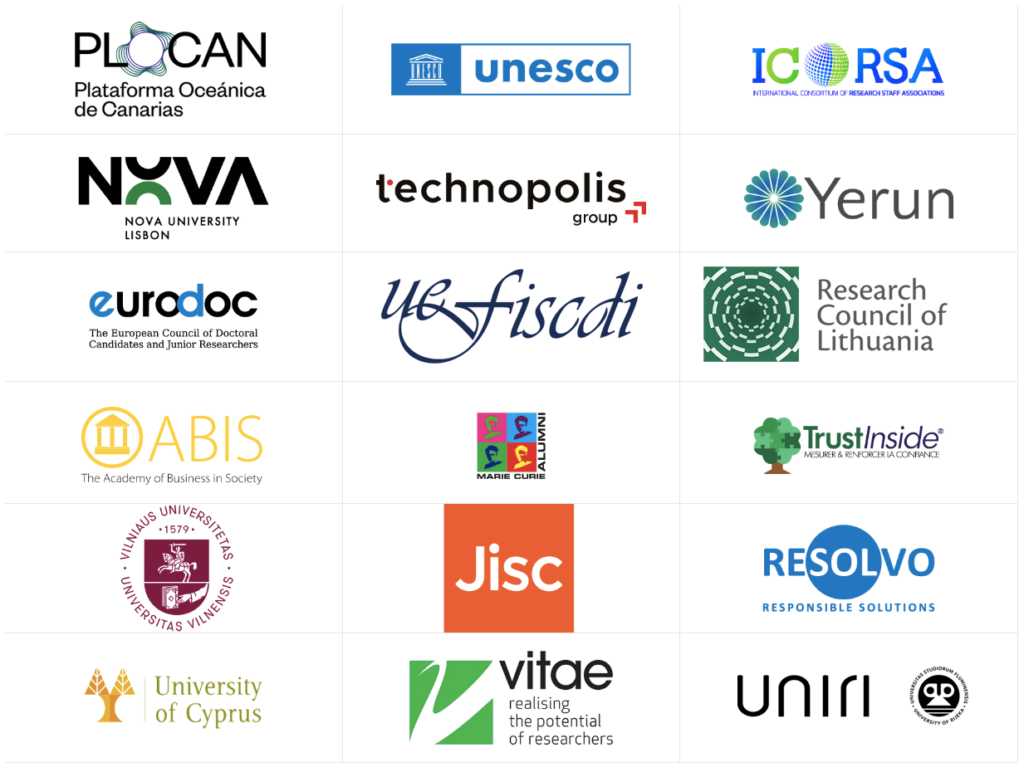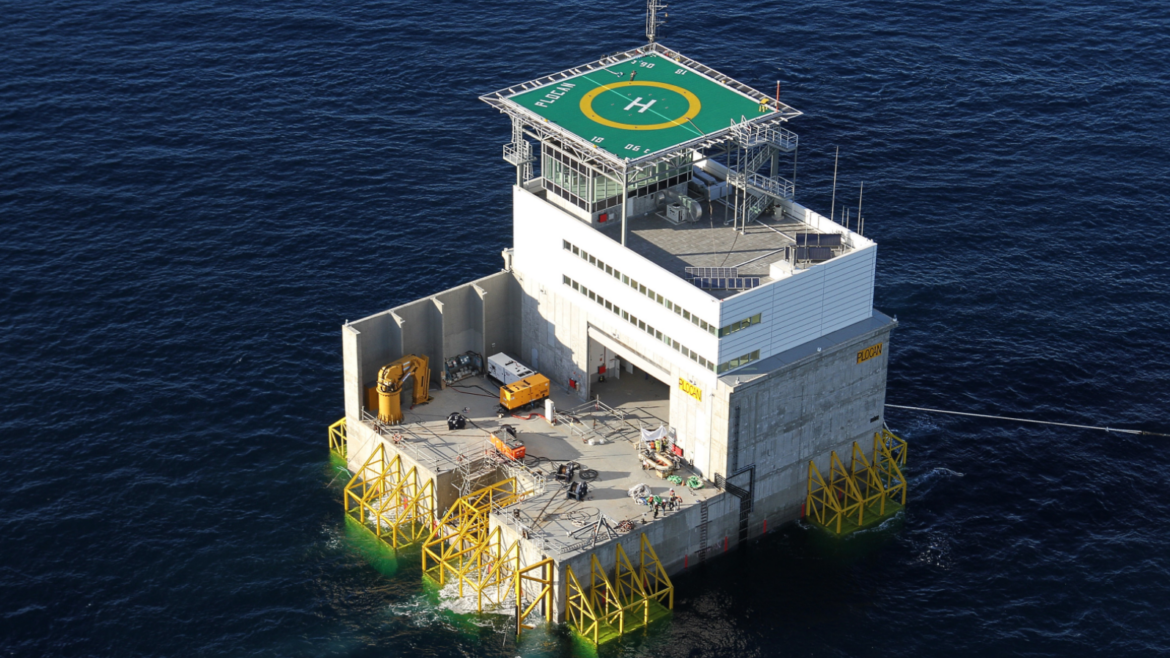The OPUS Project Kick-Off Meeting, PLOCAN, Gran Canaria, September 19-20, 2022
The OPUS Project Kick-Off Meeting, PLOCAN, Gran Canaria, September 19-20, 2022 https://opusproject.eu/wp-content/uploads/2022/09/MicrosoftTeams-image-1024x768.png 1024 768 Open and Universal Science (OPUS) Project https://opusproject.eu/wp-content/uploads/2022/09/MicrosoftTeams-image-1024x768.pngThe OPUS project is an EU-funded project implemented by an eighteen-organisations consortium led by The Oceanic Platform of the Canary Islands (PLOCAN). The main goal is to develop coordination and support measures to reform the assessment of research(ers), along with the following:
- Conduct a comprehensive state-of-the-art on existing literature and initiatives for Open Science
- Develop a comprehensive set of interventions to implement Open Science at RPOs and RFOs
- Develop realistic indicators and metrics to monitor and drive Open Science at RPOs and RFOs
- Test the interventions and indicators and metrics via action plans in pilots at RPOs and RFOs
- Utilise a stakeholder-driven feedback loop to develop, monitor, refine, and validate actions
- Synthesise outcomes into policy briefs and a revised OS-CAM2 for research(er) assessment
The kick-off conference is taking place on September 19 – 20, 2022 at PLOCAN, Carretera de Taliarte s/n (Lighthouse), 35200 Telde, Gran Canaria, Spain
Day 1 Agenda
Professional services for online participation are available on Day 1: Click here to join the conference.
PLEASE NOTE that all times in the agenda are in “WEST – Western European Summer Time – UCT+1”.
14.00 – 18.00: Project Kick Off – Day 1
14.00 – 14.15: Opening and welcome from host PLOCAN, Presentation of Kick Off Agenda, Gordon Dalton, Project Coordinator, OPUS
14.15 – 14.45: Round table to present all participants (in person and online) and their role in the project
14.45 – 15.45: OPUS Project Overview – Gordon Dalton, Project Coordinator (with input from WP Leaders, welcome from PLOCAN Manager – Carlos Medina and time for questions/input from partners)
15.45 – 16.00: Break
16.00 – 17.00: Expectations from REA / EC – Jean-Emmanuel Faure, DG RTD (Policy Officer) and Rinske Van-Den-Berg, REA (OPUS Project Officer) (with time for questions / from partners)
17.00 – 18.00: Day 1 conclusions and presentation of Day 2 Agenda – PLOCAN
Day 2 Agenda
Online participants will be able to participate using a Teams link: Day 2: Click here to join the conference.
08.30: Pick up from Las Palmas and transport to PLOCAN (pick up point Hotel Cristina by Tigotan Las Palmas, as per Day 1)
09.00 – 18.00: Project Kick Off – Day 2
09.00 – 09.05: Opening and welcome – Joaquin Brito, PLOCAN CEO
09.05 – 10.05: WP 1 State of the Art on an Open Science Ecosystem
- Presentation of WP1 and Action Plan (shared with participants in on-line meeting in early September) and initial discussion on content – Resolvo Srl / All WP participants
- Understanding the Tree of Trust – Presentation from John Crowley / Pierri Winicki, Trust Inside
- Confirmation of WP1 next tasks/timing – All WP participants
10.05 – 11.05: WP 2 Interventions for Open Science (Reward and Incentives for Researchers)
- Presentation of WP2 and Draft Action Plan – CRAC-Vitae
- Open discussion onDraft Action Plan – All WP participants
- Initial discussion on content (and link up to WP1 + WP3) – All WP participants
- Confirmation of WP2 next tasks/timing – All WP participants
11.05 -11.30: Break
11.30 – 12.30: WP 3 Indicators and Metrics for Open Science (Reward and Incentives for Researchers)
- Presentation of WP3 and Draft Action Plan – TGB
- Open discussion on Draft Action Plan – All WP participants
- Initial discussion on content (and link up to WP1 + WP2) – All WP participants
- Confirmation of WP3 next tasks/timing – All WP participants
12.30 – 13.00 – Summary of morning session, WP1-3 synergies and Action List WP1-3 – TGB (Scientific Coordinator), with WP1-2 Leaders
13.00 -14.15: Lunch
14.15 – 14.45: WP 4 Pilots to Implement and Monitor Open Science
- Presentation of WP4 and Draft Action Plan – YERUN
- Open discussion on Draft Action Plan – All WP participants
14.45 – 15.15: WP 5 Policy Briefs on Open Science
- Presentation of WP5 and Draft Action Plan – UNESCO
- Open discussion on Draft Action Plan – All WP participants
15.15 – 15.45: WP 7 Dissemination, Coordination and Exploitation
- Presentation of WP7 and Draft Action Plan – ICoRSA
- Open discussion on Draft Action Plan – All WP participants
- Confirmation of WP7 next tasks/timing – All WP participants
15.45 -16.00: Break
16.00 – 17.00: WP 6 Project Coordination and Data Management
- Presentation of WP6 and overall project management structure – PLOCAN / Resolvo
- Consortium Agreement – PLOCAN
- Reporting and costs in Horizon Europe / OPUS – PLOCAN
- Confirmation of WP6 next tasks/timing – PLOCAN / Resolvo
17.00 – 17.30: Kick Off conclusions (PLOCAN) and evaluation from all partners (input to future meetings)
The OPUS project involves 18 different European partners, covering a wide range of organisations with relevant expertise to this project:

OPUS understands the term ‘Open Science’ to refer to practices providing open access to research outputs, early and open sharing of research, participation in open peer-review, measures to ensure reproducibility of results, and involving citizens, civil society, and end-users in the co-creation of research and innovation agendas and content. With this interpretation of Open Science, OPUS will conduct a specific focus on reforming the research(er) assessment system to incentivise and reward researchers to take up these practices.
OPUS will deliver a state-of-the-art of existing literature for Open Science, interventions to implement a reformed Open Science system at Research Performing Organisations (RPOs) and Research Funding Organisations (RFOs). OPUS will develop indicators and metrics to monitor the implementation of the interventions. In particular, incentives to reward researchers to practise Open Science will be developed and tested.
In particular, OPUS will test interventions and indicators and metrics for Open Science via 3 pilot RPOs (Nova University Lisbon, University of Rijeka, and University of Cyprus) and 2 pilot RFOs from Lithuania and Romania (RCL and UEFISCDI). These pilot organisations will learn from both each other and draw experience from external experts in mutual learning exercises. The results of the pilots will be translated into policy briefs and thematic workshops that will help to raise awareness, build trust, and drive the uptake of Open Science in the community.
The project implementation started on 1 September 2022 with an implementation period of 36 months.


